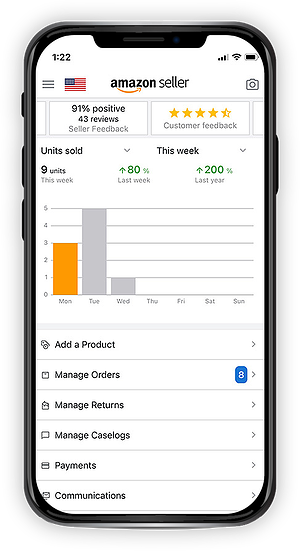
A retailer sells products to make profit. This includes customer service, pricing, and product assortment. The retail experience varies from high-touch to self-service, and the overall cost of doing business with a retailer depends on the type of product and customer base. It is important to understand the decisions that retailers make and the expectations of their customers in order to understand how they operate. Retailers' success is dependent on understanding the market, developing expertise, and gauging demand.
Customer service is the motto of a retailer
Although the phrase "Customer is always right" is a popular theme in the service industry it is not a literal principle. Actually, the motto is a philosophy of customer service. This means that employees get paid and customers build a brand through listening. Companies wouldn't survive without customers. Today, customer service has never been more important. If you treat customers poorly, you are doing them a disservice.
In 1905, the Sears, Robuck & Co. company published a guide to customer service, which states that the customer is king. Employees are instructed to listen to customers' needs and respond appropriately, with the aim of making their experience as pleasant as possible. This philosophy was largely successful because Sears and Robuck understood the power of the customer and trusted the word of mouth. But there were cases when customers were cheated.
The company's customer experience has become more competitive. Eighty percent of repeat business comes from 20 percent of its customers. Customer experience is the new battlefield. It is important to focus on it at all cost. Customer service should not only be about understanding customer expectations but also providing solutions if necessary. Your company will do well if it exceeds customer expectations and goes the extra mile.
Customer satisfaction is the most important thing for any business. A customer service slogan can help you achieve this. It's possible to create a memorable slogan that will make customers feel like they can do business with you. The slogan can make or destroy a business. This will increase the value of your company and help you stand out from others.
How much does it cost to do business with a retailer?
Retailers face a number of expenses. Some expenses are specific to a particular location, like rent and payroll. High-quality retail locations may have very high labor costs. Other costs include utilities, rent and store supplies. The greatest cost is labor. This represents 70% or more for the majority of retailers. Below are the top expenses that retailers face. To learn more, take a look at the study's complete list.
Characteristics of a retailer
A retailer is an independent business that sells products and services to customers. The retailer acts as a direct interface between the producer and its target market, as he provides both goods and services for consumers. The retailer promotes the new product and plans product displays and visual merchandising. The retailer sells goods to consumers in accordance with specifications, and maintains different brands and prices to satisfy different tastes and needs.

There are many challenges and changes in the retail industry. Retailers face challenges such as increased competition, a saturated market, and changing consumer tastes. Despite all of these issues, many retailers are able to thrive in difficult situations, retaining market share, increasing profits, and offering high-quality shopping experiences. So what are the key characteristics for a retailer? Here are some characteristics you should look for when shopping at a retailer.
A retailer sells goods in small quantities to consumers. He often buys large quantities of identical goods and then sells them in small batches. A retailer must find a way to satisfy the needs both of manufacturers and customers. The retailer may collect goods from many sources and place them on shelves according the customers' preferences. He might also purchase bulk quantities of goods to sell in small quantities. He is an expert on selling and certified as a speaker.
A retailer plays a critical role in the distribution chain. They purchase products from wholesalers and then sell them to consumers in small quantities. A retailer keeps in touch with customers and performs various marketing functions. The display of goods draws customers and helps to maintain sales. A retail shop typically sells goods on a credit or cash basis and is close to the consumer. Once a retailer opens a shop, it is their responsibility to give the greatest level of customer service.
FAQ
How can I be a smart consumer in online shopping?
Success lies in making informed decisions. Know what you want, and why. Then, you can find the best deal.
Also, you should learn how to shop around and compare prices at different retailers. This will help you to make informed decisions about where to spend your money.
Review and rate products before purchasing. They may help you decide whether to buy or not.
There are many ways you can save money on your purchase, including coupon codes and discounts.
If you're buying something expensive, consider getting financing through a credit card company. You may be eligible for 0% interest for 12 consecutive months.
There are many other ways you can save money while shopping online, but these just a handful.
Are you a believer that coupons should be used at grocery stores?
Coupons can save you money, so it is worth using them. However, you also need to remember that you can't expect to get every single discount possible. It's best to match coupons with prices on sale.
Coupons can be stacked together to maximize savings. Two $2/1 coupons can be combined to make a $4/3 coupon.
Can I purchase clothes online and then return them?
Absolutely! In fact, shopping online is easier than ever. All major retailers offer free return policies. Simply print the label and return it to us.
Remember that you can only get a return once you have received the item. If you aren't satisfied with the product for any reason, you will need to return it.
Statistics
- A report from the U.S. Census Bureau found that in the first quarter of 2022, an estimated $250 billion was spent on retail e-commerce sales.1 (thebalance.com)
- Last Black Friday, I bought a stove from Lowes at 40% off, receiving 24 months of interest-free financing (from Lowe's). (meetfabric.com)
- The vast majority only change a password to protect privacy a few times a year (27 percent) or, more likely, never (35 percent). (pcmag.com)
- An approximately 90% increase in price affords Hotel X the opportunity of extreme profits under severe circumstances. (dos.ny.gov)
External Links
How To
What are the safest online shopping methods?
Secure online shopping is something that everyone who shops online should know. It's great to be able to shop from various websites without being scammed.
Continue reading if you're interested in learning more about buying online. This article provides all the tricks and tips you need to avoid falling for scams.
-
Do your research. Before you decide to shop online, it's essential to do your homework first. You can read reviews about the company and look for feedback from customers. Refer to friends for suggestions.
-
Shop around. Compare prices between several sellers if you are unsure about the reputation of a particular store. Use price comparison tools like Amazon Price Checker, Google Shopping, and Amazon Price Checker to help you compare prices. These tools can help you find the best prices from your favorite retailers.
-
Be aware of red flags. You should be alert for any red flags when you browse product pages. Many sites are fake and contain misspelled words as well as grammatical errors. They also often display incomplete products or sell counterfeit its.
-
Beware of popups. Pop-up windows are used by some websites to collect credit card numbers and passwords. When you see one of these pop-ups, click "escape" to close it immediately or choose another browser window.
-
Ask yourself questions. Think about these questions as you browse a website. Is it offering something I need? Can I trust those behind it?
-
Don't share your personal information. If you initiated the transaction, don't give out financial information, such as your Social Security Number, bank account number, and credit card details, over the phone or by email.
-
Avoid clicking links in emails. It's easy for an email to contain a link that leads to a phishing page. This type of fraud can only be avoided by opening emails from trusted sources, such as banks.
-
Use strong passwords. Strong passwords should be composed of letters, numbers and symbols. Your password should be kept secret from others and you must not share it.
-
Be careful about downloading files. Never open attachments from unknown senders and always download files directly from the source. Never open attachments from unknown recipients. If you are sent an attachment asking you to install software, do not open it.
-
Report suspicious activity. If you suspect your identity has been stolen, contact your local police department immediately. You can also file a complaint with the Federal Trade Commission.
-
Protect your device. Make sure your computer has anti-malware protection. It could help stop hackers from accessing your private info.
-
Senior scammers are to be avoided. Seniors are more susceptible to scammers because they are less likely than others to be able to spot fake messages and websites.